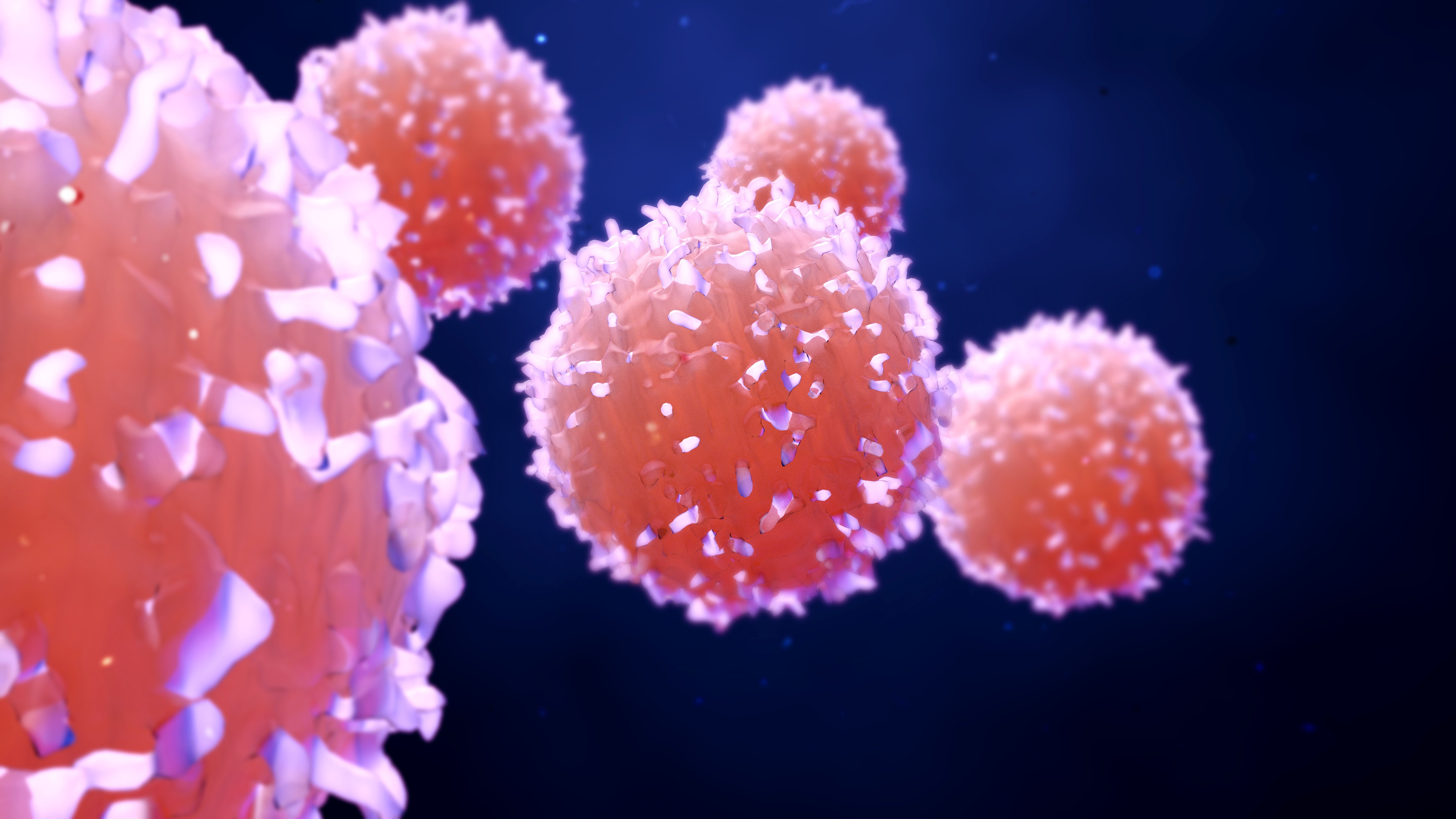Novel IRAK4 Inhibitor Demonstrates Clinical Efficacy, Acceptable Safety in AML and MDS
CA-4948 was found to have a complete remission rate of 40% and an objective response rate of 57% in some patients with acute myeloid leukemia and myelodysplastic syndrome.

CA-4948, a novel IRAK4 inhibitor showed promising clinical efficacy and an acceptable safety profile as a monotherapy in patients with relapsed or refractory acute myeloid leukemia (AML) or high-risk myelodysplastic syndrome (MDS), according to a press release by Curis, Inc.
A phase 1 study of the agent found that it produced a 40% complete remission (CR) and complete remission with partial hematologic recovery (CRh) in this patient population. Additionally, a 57% objective response rate was observed.
IRANK4 plays a key role in the toll-like receptor and interleukin-1 receptor signaling pathways, both of which are commonly dysregulated in both AML and MDS. CA-4948 is meant to inhibit this driver and improve outcomes.
The results come from an analysis of phase 1/2 trial (NCT04278768) of the agent both as a monotherapy or in combination with azacitidine or venetoclax (Venclexta). The trial has an estimated enrollment of 178 participants with an estimated completion date of February 2022. Primary end points of the trial include maximum tolerated dose, recommended phase 2 dose, complete response, duration of response, and safety. Secondary end points include pharmacokinetic parameters.
The study is made up of 4 arms. In arm one, patients received escalating doses of CA-4948 monotherapy. In arm 2, patients received escalating doses of the agent in combination with azacitidine (Onureg). In arm 3, patients received escalating doses of CA-4948 in combination with venetoclax. Arm 4 was a dose expansion of CA-4948 monotherapy.
As of December 2021, 49 patients with AML or MDS were administered the agent across the 200 mg, 300 mg, 400 mg, and 500 mg dosing cohorts. It was well tolerated at all levels, with the recommended phase 2 dose being 300 mg twice a day. Treatment-related adverse events were manageable, with no cumulative toxicities observed. No grade 4 or 5 adverse events were reported and there were no incidents of dose-limiting myelosuppression.
In order to participate in the study, patients must be 18 years of age or older, have a life expectancy of at least 3 months, have an ECOG performance status of 2 or less, have a confirmed diagnosis of MDS or AML, acceptable organ function, ability to swallow medication, and not be pregnant. Patients with acute promyelocytic leukemia, known central nervous system leukemia, chronic myeloid leukemia, active advanced solid tumors, or have gastrointestinal disease are not eligible to participate.
REFERENCES:
1. Curis announces updated data with additional encouraging clinical activity in phase 1/2 study of CA-4948 monotherapy in targeted patients with relapsed or refractory AML and MDS; and initial clinical data from phase 1 study of CI-8993 in patients with relapsed or refractory solid tumors. News release. Curis, Inc. January 6, 2022. Accessed January 7, 2022. https://bit.ly/3G8UO5I
2. Dose escalation/ expansion trial of CA-4948 as monotherapy and in combination with azacitidine or venetoclax in patients with AML or MDS. ClinicalTrials.gov. Accessed January 7, 2022.





